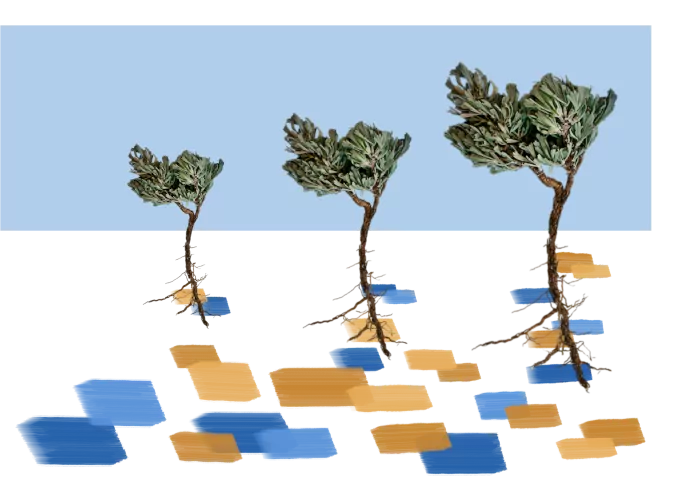What is Open Coding in Grounded Theory?
A brief introduction
For more best practices see our method overview

What is open coding?
Grounded Theory is a qualitative research method that aims to generate theories from data. Developed by sociologists Barney Glaser and Anselm Strauss in the 1960s, it has become a widely used approach in various fields. One of the key stages in grounded theory analysis is open coding, which involves the initial exploration and categorization of data. This article provides a comprehensive understanding of open coding in grounded theory, exploring its purpose, process, and significance in qualitative research.
Purpose of Open Coding
Open coding is a type of Coding that serves as the foundational step in grounded theory analysis, enabling researchers to immerse themselves in the data and identify initial patterns and concepts. Its primary purpose is to generate a comprehensive list of codes that represent the different ideas, concepts, and phenomena present in the data. By engaging in open coding, researchers can develop a deeper understanding of the data and begin the process of theory development.
The Process of Open Coding
Open coding involves a systematic and iterative process of analyzing qualitative data. The following steps are typically followed during open coding:
- Data Exploration: Open coding allows researchers to engage deeply with the data, enabling the identification of meaningful patterns and concepts. It helps uncover new perspectives and insights that might have been overlooked initially.
- Theory Development: Open coding serves as the foundation for theory development in Grounded Theory. By generating a comprehensive list of codes, researchers can gradually build theories that explain the phenomena observed in the data.
- Flexibility and Emergence: Open coding provides flexibility in the analysis process, allowing new codes and categories to emerge as the data is explored. This flexibility enables researchers to adapt their analysis to the evolving nature of the data.
- Reflexivity and Researcher Subjectivity: Open coding encourages researchers to reflect on their own subjectivity and preconceived notions. It facilitates the identification and exploration of potential biases that may influence the analysis process.
- Transparency and Trustworthiness: Open coding enhances the transparency and Trustworthiness of qualitative research. By providing detailed documentation of the coding process, researchers allow others to follow their analytical journey and assess the rigor of their findings. This documentation can be facilitated by an Audit Trail
Challenges
While open coding is a valuable analytical approach, it is not without its challenges. Researchers should be mindful of the following considerations:
- Bias and Preconceptions: Researchers must remain aware of their own biases and preconceptions, striving to approach the data with an open mind. Engaging in open coding requires a willingness to set aside preconceived notions and allow the data to speak for itself.
- Interpretation and Subjectivity: Open coding involves interpretation, and different researchers may interpret the same data differently. It is essential to acknowledge and address the subjectivity of coding by engaging in Reflexivity and seeking input from colleagues or engaging in Peer Debriefing.
- Time and Resource Constraints: Open coding can be a time-consuming process, especially when dealing with large volumes of data. Researchers need to allocate sufficient time and resources to ensure a thorough and rigorous analysis.
- Managing Complexity: As the coding process progresses, the number of codes and categories can become overwhelming. Researchers should actively manage the complexity by constantly reviewing and refining codes and categories, seeking patterns and connections to create a coherent theoretical framework.
- Integration with Later Stages of Grounded Theory: Open coding is just the first step in grounded theory analysis. It needs to be followed by axial coding, selective coding, and constant comparison to develop a comprehensive theory. Researchers should ensure a smooth transition from open coding to subsequent stages of analysis for a cohesive research process.
Conclusion on Open Coding in Grounded Theory
Open coding is a fundamental aspect of grounded theory analysis, enabling researchers to explore qualitative data, generate initial codes, and begin the process of theory development. It involves a systematic and iterative process of categorizing data, seeking patterns, and identifying concepts. Open coding not only facilitates data exploration and theory development but also enhances the transparency and trustworthiness of qualitative research.
While open coding presents its challenges, such as biases and subjectivity, these can be addressed through Reflexivity, collaboration, and thorough documentation. Researchers should remain open-minded, adaptable, and diligent in managing the complexity that arises during the coding process. By embracing the potential of open coding, researchers can unlock the richness of qualitative data and contribute to the advancement of knowledge in their respective fields through grounded theory analysis.
We use cookies for a number of purposes, including analytics and performance, functionality and advertising. Learn more about QDAcity use of cookies.
Analytics:Performance:Functional: